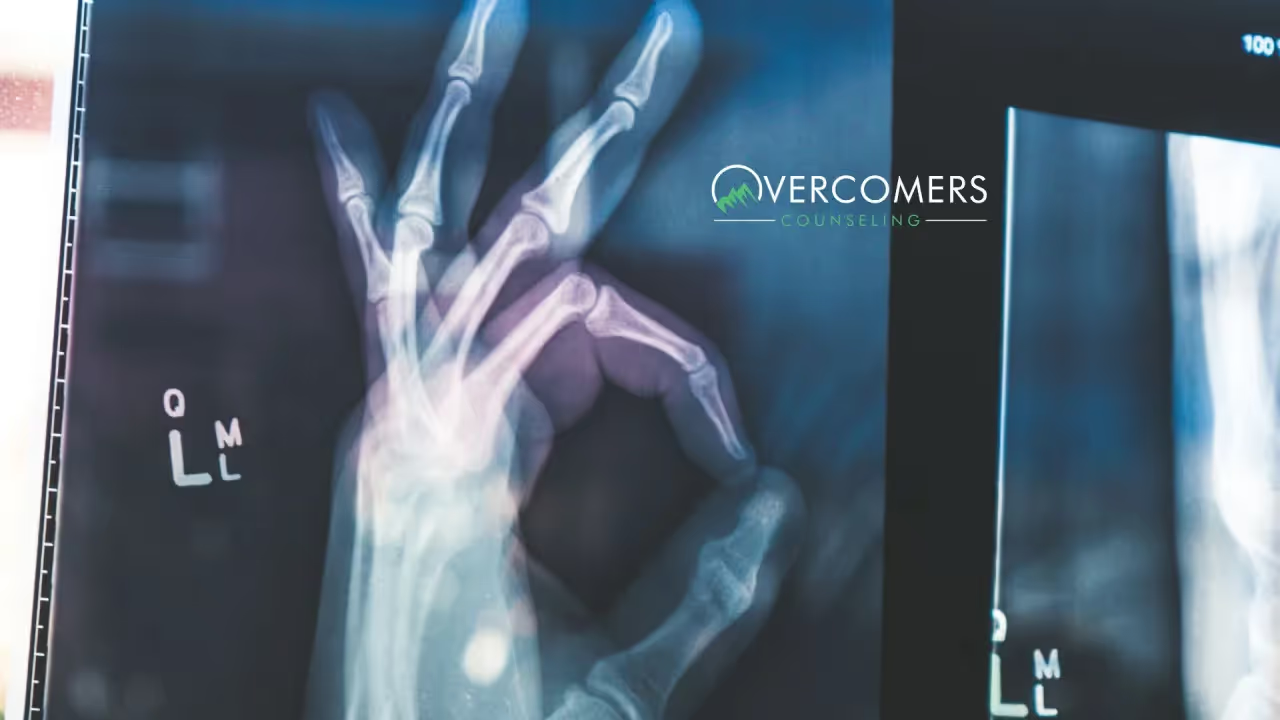Pre-surgery anxiety is a common phenomenon experienced by many individuals, yet it remains an often overlooked aspect of the surgical process.The...

Pre-surgery anxiety is a common phenomenon experienced by many individuals, yet it remains an often overlooked aspect of the surgical process.
The anticipation of an upcoming surgery can stir up a whirlwind of emotions, ranging from mild unease to crippling fear.
It's important to address this anxiety because it can significantly influence not only the patient's mental well-being but also their physical recovery post-surgery.
Moreover, understanding that it's perfectly normal to feel anxious before a surgical procedure can be a comforting realization, as it helps patients recognize that they're not alone in their feelings.
Fear is not a sign of weakness but rather, a natural human response to situations that feel threatening or uncertain, such as an impending surgery.
Ignoring or suppressing these fears can often lead to heightened stress and anxiety. Instead, acknowledging your fears can be the first step toward managing them effectively.
It can be helpful to write down your worries or discuss them with a trusted friend or family member.
This acknowledgment gives you a starting point to address your fears head-on, allowing you to take control of your feelings instead of letting them control you.
Acceptance plays a significant role in dealing with pre-surgery anxiety. Accepting that it's normal to feel anxious before a surgical procedure can alleviate the additional stress of feeling "wrong" or "weak" for having these fears.
Furthermore, acceptance paves the way for effective coping strategies. Once you've identified and accepted your fears, you can begin to learn techniques to manage them, such as deep breathing exercises, progressive muscle relaxation, or guided imagery.
Understanding and accepting your anxiety are key steps on the path to reducing pre-surgery stress and fostering a mindset conducive to healing and recovery.
One of the most effective ways to combat pre-surgery anxiety is through education. Understanding your surgical procedure can significantly reduce fear and uncertainty, empowering you to face the situation with confidence.
This involves learning about the procedure itself, its risks and benefits, the recovery process, and any other pertinent information.
Prior to your surgery, make sure to have a detailed discussion with your doctor. Don't hesitate to ask questions. Here are some suggestions:
Additionally, consider doing your own research. Read up on credible medical websites, patient forums, or even medical journals if you feel comfortable doing so.
However, keep in mind that every individual's experience with surgery is unique, and not everything you read may apply to your situation.
Maintaining open and effective communication with your healthcare team is a vital component in reducing pre-surgery anxiety.
Your doctors, nurses, and other healthcare professionals are there to support you, not just physically, but emotionally as well.
By openly expressing your fears, concerns, and expectations, they can provide reassurances, clarify misunderstandings, and adjust your treatment plan if necessary.
Understanding your treatment plan, including what will happen during the surgery, the expected recovery process, and any potential risks or complications, can significantly alleviate anxiety.
It eliminates the fear of the unknown and enables you to prepare for the journey ahead, giving you a greater sense of control over your healthcare experience.

In the journey to reduce pre-surgery anxiety, mindfulness and relaxation techniques can be powerful tools.
These practices not only help in calming your mind but also have physiological benefits such as slowing your heart rate and lowering blood pressure.
The habit of mindfulness, which involves staying aware of our thoughts, emotions, physical sensations, and immediate surroundings on a moment-to-moment basis, can be remarkably effective in alleviating anxiety.
Good nutrition, adequate sleep, and regular exercise play an essential role in managing anxiety.
A balanced diet can help strengthen your immune system and speed up recovery, while regular physical activity can boost your mood and help reduce anxiety.
Getting enough sleep is crucial as it allows your body to heal and rejuvenate.
It's also important to avoid stimulants such as caffeine and alcohol, which can increase anxiety levels and interfere with sleep.
If your anxiety becomes overwhelming, persists for a prolonged period, or leads to feelings of depression, it may be necessary to seek professional help.
Mental health professionals, such as psychologists and psychiatrists, have the tools and expertise to help you navigate through these challenging emotions.
They can provide cognitive-behavioral therapies, prescribe medication if needed, and offer other forms of support.
You can find professional mental health support through various resources, including your primary care provider, local mental health clinics, or online platforms that offer teletherapy services.
Managing pre-surgery anxiety is a critical aspect of overall health and recovery. The anticipation of surgery can induce stress and fear, which can interfere with your body's healing process.
By employing the techniques discussed—deep breathing, progressive muscle relaxation, guided imagery, mindfulness, maintaining good nutrition, sleep, regular exercise, and avoiding stimulants like caffeine and alcohol—you can better equip yourself to handle this anxiety.
However, it's crucial to remember that if these self-care strategies are not enough, professional help is available and necessary in some cases.
Taking steps to manage your anxiety not only prepares you for surgery but also contributes to a smoother recovery and better overall health.
Ignoring anxiety can exacerbate symptoms and make it more challenging to manage over time. This can result in a negative impact on your personal, professional, and social life, leading to feelings of isolation and even depression.
Yes, Medicaid provides insurance coverage for therapy services specifically designed to help individuals struggling with anxiety, depression, and other mental health conditions.
It's important that you feel comfortable discussing personal matters with your therapist in order to open up and get more out of therapy sessions; therefore finding someone who meets certain criteria like experience level, expertise areas, and personality is key when selecting a therapist who can give meaningful feedback about how best handle issues related to anxiety or other mental health concerns.
Addressing anxiety is crucial because it can significantly impact your quality of life and overall well-being. Left untreated, anxiety can lead to more severe mental health issues, relationship problems, and difficulty functioning in daily life.
Other activities which have been found helpful in reducing both immediate feelings of anxiousness and long-term anxieties associated with chronic disorders include yoga, journaling, nature walks, art therapy, volunteering, and other low-stress activities. Additionally, developing a healthy lifestyle incorporating adequate sleep, physical activity, and nutritious meals can help reduce overall stress levels.
The duration of anxiety counseling varies for each individual, depending on the severity of their anxiety and their progress in therapy. Our therapists will regularly assess your progress and adjust your treatment plan as needed.